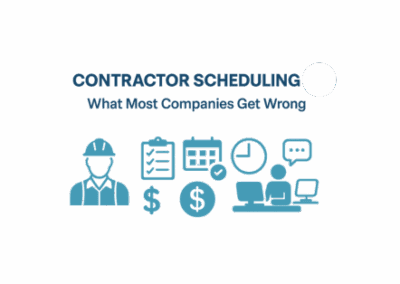Patient complaints are a common issue in the home healthcare industry. As healthcare providers, it’s important to take these complaints seriously and handle them effectively to maintain a positive relationship with patients and their families. In this blog post, we will discuss the importance of effective complaint handling in home healthcare organizations, and provide tips for handling patient complaints in a professional and empathetic manner.
Why Effective Complaint Handling is Important

Effective complaint handling is an important aspect of home healthcare organizations. Complaints can range from issues with the quality of care provided to dissatisfaction with the services offered. If these complaints are not handled the right way, they can result in negative consequences for both the patient and the organization.
For the patient, a negative experience can lead to decreased trust in the healthcare provider, which can affect their recovery and overall satisfaction with the care received. On the other hand, for the healthcare organization, a negative complaint can result in a loss of reputation and trust from both the patient and the wider community. This can also lead to decreased business and reduced revenue.
Common Patient Complaints in Home Healthcare
With many moving parts, it’s no surprise that patient complaints are pretty common in the home healthcare industry. One of the most common issues is late or missed home visits. This is a huge issue for both patients, and business owners in home healthcare. The patient doesn’t receive the care they need, and the carer often submits a timesheet that includes the visit anyway. Fraud is unfortunately, very common in home healthcare. In fact, the federal government saw a return of nearly $1.9 billion in health care fraud settlements and judgments in 2021. Thankfully, EVV (electronic visit verification) has been introduced across the United States to reduce this type of fraud. This will hopefully have a positive impact and reduce the number of patient complaints around late or missed visits.
Other common complaints from patients include poor communication, and lack of continuity. When it comes to home healthcare, there are multiple parties that require absolute transparency in their communications. There is of course, the patient. Then there is the healthcare provider. There is also the patient family, and the patient insurance provider, or the government in the case of Medicare or Medicaid. Without effective, open and clear communications, wires get crossed and patients often miss out of the treatments they require. This, in turn, leads to patient complaints. The issue of a lack of continuity refers to how patients may not see the same caregiver on a consistent basis. There are many possible reason’s for this; poor workforce management, carer burnout, or high carer turnover are all equally likely. Regardless, all patient complaints should be handled effectively to ensure quality care is provided, and patients are looked after.
Tips for Handling Patient Complaints Effectively
1. Listen to the patient
The first step in handling patient complaints is to listen to what the patient has to say. It’s important to show empathy and understanding towards the patient’s concerns, and to give them the opportunity to express their feelings. This not only helps to build a positive relationship with the patient, but also provides valuable insight into the cause of the complaint.
2. Acknowledge the complaint
Acknowledge any and all patient complaints and let the patient know that their concerns are being taken seriously. This can be done by making a statement such as, “Thank you for bringing this to our attention. We are here to help, and we are committed to finding a solution.” A simple thing like this reassurance gives the patient peace of mind that they are a priority.
3. Investigate the complaint

Investigate the complaint thoroughly and gather all the relevant information. This includes speaking with the patient, their family, and any relevant staff members involved in the patient’s care. This helps to determine the root cause of the complaint and to find a solution that addresses the issue. It can help to document everything so that you can review this with your patient later. Of course, it’s not out of the realms of possibility that legal action might be taken if a complaint is regarding a serious issue. As a healthcare provider, you have to protect yourself as well as your patients.
4. Offer a solution
Once the cause of a patient complaint has been determined, offer a solution that addresses the issue. This can be as simple as offering an apology, or it may involve making changes to the patient’s care plan or the services offered by the healthcare organization. It’s important to ensure that the solution is realistic, and that it addresses the concerns of the patient.
5. Follow up
Following up with the patient is an equally important step in the complaint handling process. This shows that the healthcare organization is committed to ensuring that the issue has been resolved, and that the patient is satisfied with the outcome. The follow-up can be as simple as a phone call or a meeting with the patient. It’s important to make sure that the patient is satisfied with the resolution.
6. Document the complaint and resolution
Documenting the complaint and resolution is important for both the patient and the healthcare organization. This helps to ensure that the complaint is properly addressed, and that the resolution is documented for future reference. This documentation can also be used to improve the healthcare organization’s processes and to prevent similar complaints from happening in the future.
Handling patient complaints effectively is crucial for the success and reputation of home healthcare organizations. It is an opportunity for the healthcare provider to demonstrate their commitment to patient satisfaction and improve the quality of care provided. Not only will this keep current patients happy, but it will help you attract new patients, helping you grow your business.




